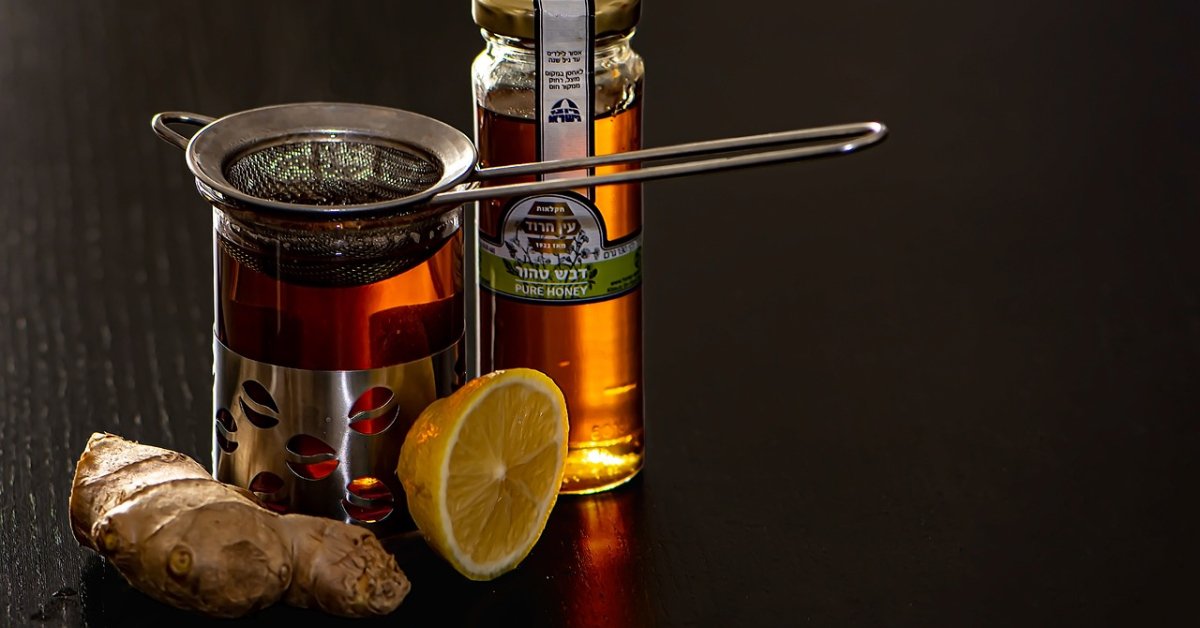Switching to a vegan diet made me feel lighter and more energized but I quickly realized my digestion needed some extra care. Plant-based eating packs in plenty of fiber and nutrients yet it can also bring unexpected bloating or discomfort if I’m not mindful about how I eat.
I’ve learned that a few simple tweaks can make all the difference for a happy gut. Whether you’re new to veganism or just want to feel your best every day I’m excited to share practical tips that helped me improve my digestion and truly enjoy my meals.
Understanding Digestion on a Vegan Diet
Digestion works differently on a vegan diet because plant foods carry more fiber, prebiotics, and resistant starches than animal-based foods. I’ve seen guests at my restaurant thrive on this fiber boost, but some newcomers notice bloating or changes in bowel movements, especially after increasing whole grains, beans, and cruciferous vegetables like broccoli and kale.
Gut microbiota respond to vegan inputs by shifting populations—certain beneficial bacteria, such as Bifidobacteria, flourish with prebiotic-rich meals, according to the American Gut Project. A robust microbiome helps break down fibers, producing short-chain fatty acids that support colon health and immune function.
Most vegan foods, including lentils, chickpeas, sweet potatoes, and seeds, contain digestive enzymes and soluble fiber. These components slow sugar absorption, manage cholesterol, and improve stool regularity. If fiber intake rises sharply without adequate water, discomfort or gas may result.
Preparation methods, such as soaking beans overnight, sprouting grains, or cooking root vegetables, can reduce antinutrient content, enhance nutrient availability, and ease digestion. When I design recipes, I focus on combining ingredients like fresh herbs, citrus, and fermented foods to naturally boost digestive efficiency and flavor.
For home cooks exploring vegan food and recipes, understanding digestion helps me guide ingredient choices and preparation techniques for optimal comfort and absorption.
Common Digestive Challenges for Vegans
Digestion often shifts quickly when adding more plant-based foods. I see these common issues with new vegans who want their meals to taste good and feel good.
High Fiber Intake
High fiber intake from beans, whole grains, lentils, and leafy greens improves gut health for most people. Some experience bloating, gas, or discomfort when they ramp up fiber suddenly. My students often notice these symptoms after swapping white bread or pasta for hearty whole grains like farro or barley, or eating more raw vegetables. Gradually increasing fiber-rich foods supports a more comfortable transition while allowing gut microbiota to adapt.
Plant-Based Protein Sources
Plant-based protein comes from legumes, tofu, tempeh, nuts, and seeds. For some, beans and lentils cause gas or cramping, especially when new to a vegan diet. Soaking beans overnight, using lentils in soups, or fermenting soy products like tempeh enhances digestibility and reduces discomfort. I recommend experimenting with different protein sources; for example, sprouted lentils, silken tofu, or roasted chickpeas create tasty, easy-to-digest dishes that satisfy nutrient needs.
Food Combinations and Antinutrients
Food combinations such as pairing beans with whole grains create complete proteins in vegan meals, but certain foods—such as raw spinach, nuts, or whole grains—contain antinutrients like phytates and oxalates. These compounds slightly reduce mineral absorption and, for some people, lead to minor digestive trouble. Cooking, sprouting, or soaking nuts and grains at home helps lower antinutrient levels. I often toast seeds, bake grains, or blend greens into smoothies to make nutrients more accessible and vegan recipes more enjoyable.
Essential Tips on How to Improve Digestion on a Vegan Diet
Digestive comfort transforms the vegan experience, letting plant-based meals feel satisfying and light. I use these evidence-based tips every day to keep my digestion on track and enjoy vibrant health with every vegan recipe.
Gradually Increase Fiber
I gradually increase high-fiber foods like beans, broccoli, whole grains, and lentils to support digestion and prevent bloating. Sudden jumps in fiber often cause gas or discomfort, so I add 1–2 extra servings per week until my gut adapts. Cooking steps like soaking and slow-cooking beans, or steaming cruciferous vegetables, ease their transition into recipes.
Stay Hydrated
I drink at least 2 liters of water daily, especially when I eat a fiber-rich diet. Fiber relies on water to maintain stool softness and bulk, reducing constipation risk. If I prepare dry meals like baked granola or grain bowls, I increase my fluid intake to match.
Chew Food Thoroughly
I always chew each bite until it’s fully broken down to make digestion easier and let flavors develop. Thorough chewing gives enzymes more surface area to work on and supports better absorption. Crunchy foods like raw carrots, apples, or seeded crackers especially benefit from this habit.
Incorporate Probiotics and Fermented Foods
« Why Veganism Matters for Animal Welfare: Compassionate Choices That Reduce Animal Suffering
How to Dice Onions Without Tears: Proven Tips and Tools for Tear-Free Chopping »
I add probiotic-rich foods like sauerkraut, kimchi, miso, tempeh, or plant-based yogurt every day to support a thriving gut microbiota. Fermented foods contain live bacteria that help manage bloating and aid fiber breakdown. For homemade recipes, I often use wild fermentation for extra variety in beneficial microbes.
Balance Macronutrients
I balance meals with protein-rich foods (tofu, tempeh, seitan), healthy fats (avocado, nuts, seeds), and complex carbs (quinoa, sweet potatoes) for steady digestion and energy release. Combining protein and fats with fibrous vegetables slows absorption and prevents spikes in blood sugar, while making meals more satisfying.
Foods That Support Digestive Health on a Vegan Diet
Many whole plant foods naturally support digestive comfort, especially when chosen and prepared with intention. I focus on variety, texture, and proven digestive boosters to help my clients and home cooks feel their best.
Gut-Friendly Fruits and Vegetables
Fresh fruits and vegetables fuel gut health with fiber, water, and natural digestive enzymes. I rely on papayas and pineapples for their protease enzymes, which break down protein fibers and ease digestion. Bananas, kiwis, and avocados replenish potassium and are gentle on sensitive stomachs. I always include cooked carrots, zucchini, and pumpkin in soups or stews for soluble fiber that soothes the gut and promotes regularity. A combination of raw and lightly steamed greens like spinach, arugula, or romaine delivers prebiotics and adds crunch, but I steam cruciferous vegetables (broccoli, cauliflower, Brussels sprouts) to reduce bloating for those new to high-fiber eating.
Legume and Grain Tips
Legumes and grains fuel most of my recipes with protein and complex carbs, but I use specific tricks to maximize their digestibility. I soak lentils, chickpeas, and beans for 8–12 hours and then rinse them before cooking, which reduces oligosaccharides linked to gas. I rotate between quinoa, millet, and oats, which cause less bloating than wheat. I sprout mung beans or lentils and serve them in salads or bowls for tender texture and boosted enzyme activity. Fermented foods like tempeh and miso supply plant protein plus probiotics, making them perfect for the digestive system. I pair slow-cooked brown rice or barley with vegetables to complete proteins and balance fiber with moisture.
Herbal Teas and Spices
Herbal teas and spices soothe digestion and add flavor to vegan meals. I steep ginger or peppermint tea after meals to relieve bloating and support motility. I blend turmeric with black pepper into dals and curries for gentle warmth and anti-inflammatory benefits. Fennel seeds go into stews and breads to reduce gas and promote gut comfort. I use caraway, cumin, and coriander in my bean recipes to help break down starches and improve tolerance. Chamomile tea calms digestion, especially in the evening after a day of fiber-rich eating.
Lifestyle Habits to Enhance Digestion
Making lasting changes in daily routines lets me get the most from vegan meals while keeping digestion smooth and comfortable. Every habit here connects to kitchen routines, meal enjoyment, and feeling truly vibrant.
Maintain Regular Meal Times
Eating at set times helps support natural digestive rhythms. I eat breakfast, lunch, and dinner around the same times each day so my body expects when to digest and absorb nutrients. When I skip or delay meals, I notice more bloating or sluggishness—especially after a high-fiber dinner. Consistent meal timing encourages steady enzyme and gastric acid release, which aids in breaking down starchy beans, tofu, and leafy greens.
Manage Stress Levels
Chronic stress impacts digestion, sometimes causing stomach discomfort or unpredictable bowel movements. I use short daily mindfulness sessions or deep breathing exercises, especially before meals, to stay relaxed. Planning my favorite simple vegan recipes, like lentil dal or baked sweet potatoes, reduces stress linked to decision fatigue around eating. When I feel calm, I digest better and genuinely enjoy the flavors and textures of my meals.
Prioritize Physical Activity
Regular physical movement, such as brisk walks after meals or a 20-minute home yoga session, enhances digestion by supporting healthy gut motility. I recommend gentle activity over strenuous workouts immediately after eating. On days when I’m less active, I sometimes notice more heaviness even with light meals like chickpea salads or fruit smoothies. Moving regularly keeps me energized and my digestive system balanced.
Conclusion
Switching to a vegan diet can be incredibly rewarding for both health and well-being but it does come with a learning curve when it comes to digestion. I’ve found that a little patience and a few mindful changes can make a big difference.
With the right habits and some experimentation you’ll soon discover what works best for your body. Everyone’s journey is unique so stay curious and gentle with yourself as you explore new foods and routines. Your gut will thank you for it.





